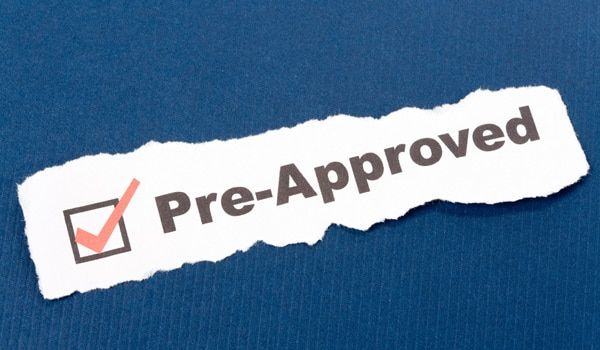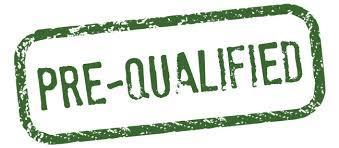
Pre-Qualification vs. Pre-Approval: What's the Difference?
Traditionally, the difference between pre-qualification vs pre-approval is whether or not the lender verifies the information.
Curious about the difference between pre-qualification vs pre-approval as it relates to taking out a mortgage?
Traditionally, there is a distinction between pre-qualification and pre-approval. However, the process of getting accepted as a borrower for a home loan before actually applying may not be separated into two steps depending on which lender you work with.
Today, many lenders combine pre-approval and pre-qualification into a single step that precedes the official application.
While each lender may approach the question of “pre-qualification vs pre-approval” in their own way, it’s still important for buyers to understand exactly what these two terms mean in order to successfully navigate the mortgage process.
How Pre-Qualification and Pre-Approval Factor Into the Mortgage Process

When you are seeking a mortgage to finance your home purchase, you will need to find out whether or not you qualify as a borrower as well as how much you’d be eligible to borrow.
When a buyer first approaches a lender, they will find out this information by seeking pre-qualification or pre-approval. Both of these steps have the goal of finding out more details about what a potential mortgage loan would look like if you were to take one out with a specific lender.
Pre-Qualification Vs Pre-Approval
Pre-Qualification Explained
Traditionally, pre-qualification is the first step to getting a mortgage. With pre-qualification, borrowers approach a lender and submit basic personal and financial information to determine their eligibility.
The lender then takes that information and uses it to create a rough overview of what a loan would look like if it were taken out with those exact qualifications.
What’s the Difference?
The biggest difference between pre-qualification and pre-approval is that the lender does not verify the borrower’s information during pre-qualification but does verify it during pre-approval.
Pre-Approval Explained
At the pre-approval phase, lenders require more information and paperwork including tax returns, financial statements, and employment records. The lender runs a close examination to verify all of the information provided at the pre-approval stage.
The lender uses that information to provide borrowers with a more detailed pre-approval letter. This letter outlines what that borrower would be approved for if they took out a loan.
Not All Lenders Separate Pre-Qualification vs Pre-Approval
However, pre-qualification and pre-approval are often combined under a single term that precedes the official loan application.
Buyers should speak with lenders as they interview to learn more about the specifics of their lending process as well as the distinction between pre-qualification vs pre-approval.
Why Pre-Approval and Pre-Qualification Are Important

Pre-qualification and pre-approval are both important steps in the mortgage process for multiple reasons.
#1. They Help Buyers Know Which Lenders Will Fund Their Purchase
On the most basic level, pre-approval and pre-qualification are important because they tell buyers whether or not a lender will fund their home purchase.
Starting with this first step, buyers will quickly find out whether or not they can pursue a mortgage with that lender, or if they need to move on to another option. This prevents buyers from wasting time.
#2. They Help Buyers Choose the Right Mortgage
These two steps allow buyers to compare loan offerings based on real numbers.
Buyers are given the information required to make an educated decision about their mortgage loan through pre-qualification and pre-approval. They can determine which is the best offer based on overall affordability, loan terms, and other factors.
#3. They Help Buyers Set Realistic Budgets
Pre-qualification and pre-approval can also be helpful for forming a realistic budget for your real estate purchase.
Buyers will have a number to guide their property search based on how much lenders are willing to lend them. Use the amount you qualify for as the high-end of your budget to account for additional mortgage expenses such as insurance or taxes.
#4. They Help Buyers Make a Strong Offer
Finally, pre-approval and pre-qualification are essential for forming a strong and appealing offer on a potential listing.
Sellers will be looking for a buyer that has the financial backing to successfully purchase the home when it comes time to close. Providing proof of funding through a pre-qualification or pre-approval letter from your lender will help sellers feel comfortable about accepting your offer.
In busy markets where multiple bids are common, pre-approval and pre-qualifications are critical for winning over competing buyers.
Neither Pre-Approval nor Pre-Qualification Guarantee Funding
Buyers should keep in mind that neither pre-qualification nor pre-approval status guarantees to fund the amount named. In order to officially apply and secure your loan, you must take the necessary steps with your lender.
For more articles sharing tips for home buyers, click here. If you’re interested in getting connected with the best agents in your area to represent your purchase, find a top agent through Realestateagents.com.






